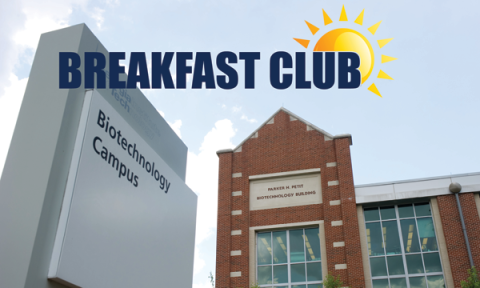event
Breakfast Club Seminar
Primary tabs
"Toroidal Fun"
Alberto Fernández De Las Nieves, Ph.D.
Associate Professor
School of Physics
Georgia Tech
Abstract
We study the physics of soft materials and also do physics with soft materials. In this talk, I will present an overview of some of our recent work involving, in one or another way, the use of tori. We will cover how we make toroidal and how we stabilize them against surface tension instabilities; this altogether provides an interesting way to 3D print materials. We will then discuss what we use toroidal droplets and hydrogels for. This includes the study of conventional and active liquid crystals confined to toroidal spaces, and addressing whether geometry affects cell behavior. I will then leave the torus and briefly discuss our work with colloidal hydrogels and fire ant aggregations.
Research focus
Soft materials are materials whose properties are determined by internal structures with dimensions between atomic sizes and macroscopic scales. They are characterized by energies that are typically comparable to KBT. As a result, they have low elastic moduli, often ~1-10 Pascals. Typical soft materials include liquid crystals, polymers, colloidal suspensions and emulsion drops. These materials, unlike conventional simple liquids, are locally heterogeneous and can have broken symmetries that affect their physical properties. Hence, although they often exhibit liquid-like behavior, soft materials also often exhibit properties of solids.
Our laboratory studies the physics of soft materials with a focus on the connection between microscopic order and macroscopic properties. The underlying theme is to pursue basic understanding and address fundamental questions. However, we also address applied problems and pursue industrial collaborations since many of the materials we study can be viewed as model systems for those that are often used in applications.
The Parker H. Petit Institute for Bioengineering and Bioscience, an internationally recognized hub of multidisciplinary research at the Georgia Institute of Technology, brings engineers, scientists, and clinicians together to solve some of the world’s most complex health challenges. With 17 research centers, more than 170 faculty members, and $24 million in state-of-the-art facilities, the Petit Institute is translating scientific discoveries into game-changing solutions to solve real-world problems.
Groups
Status
- Workflow status: Published
- Created by: Colly Mitchell
- Created: 11/09/2015
- Modified By: Fletcher Moore
- Modified: 04/13/2017
Categories
Keywords
User Data
Target Audience

